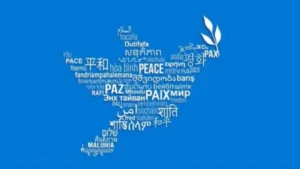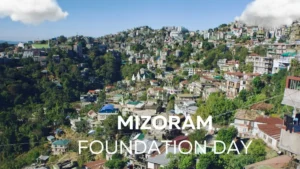The International Day of Neutrality, observed annually on December 12, highlights the vital role neutrality plays in fostering global peace and security. This day aims to raise public awareness about the importance of neutrality in intergovernmental relations and its contribution to strengthening global stability and harmony.
What is Neutrality?
According to international law, neutrality refers to the legal status of a sovereign state that abstains from participating in conflicts between other nations. Neutral countries maintain an impartial stance toward warring parties and actively advocate for peaceful resolutions through dialogue.
A neutral country refrains from alliances during conflicts and works to mediate disputes in a diplomatic manner. One of the most iconic examples of neutrality is Switzerland, which is internationally recognized for its policy of neutrality. This stance allowed Switzerland to remain unaffected by the devastation of the First and Second World Wars.
Key Features of Neutrality:
- Non-participation in wars between other states.
- Impartiality in international disputes.
- Advocacy for peaceful conflict resolution.
India’s Policy of Neutrality
India has historically adhered to a policy of neutrality in global politics. During the Cold War era, when the world was divided into two power blocs led by the United States and the Soviet Union, India chose to remain neutral. It became a founding member of the Non-Aligned Movement (NAM), emphasizing its stance of not aligning with either bloc while maintaining sovereignty and advocating for peaceful coexistence.
Even in the contemporary geopolitical scenario, where Russia and the United States continue to have opposing ideologies and policies, India has maintained a balanced approach. India shares friendly relations with both nations and actively participates in global forums to promote peace and cooperation.
History of the International Day of Neutrality
The United Nations General Assembly adopted Resolution 71/275 on 2 February 2017, proposed by Turkmenistan, a country recognized by the UN as a permanently neutral state since 12 December 1995. This resolution emphasized the connection between neutrality and the goals of the 2030 Agenda for Sustainable Development.
The resolution designated 12 December as the International Day of Neutrality and encouraged the UN Secretary-General to work closely with neutral states to implement principles of preventive diplomacy and mediation activities.
Preventive Diplomacy: A Tool for Peace
The concept of preventive diplomacy plays a pivotal role in promoting neutrality. It involves diplomatic measures aimed at preventing disputes from escalating into armed conflicts and limiting the spread of conflicts.
Key Aspects of Preventive Diplomacy:
- Encouraging dialogue among conflicting parties.
- Advocating for compromise and peaceful solutions.
- Dispatching envoys to crisis zones to mediate and resolve tensions.
By focusing on prevention rather than reaction, the UN and neutral states contribute significantly to fostering global stability and reducing the likelihood of violent confrontations.
Role of the United Nations in Conflict Mediation
Since its establishment, the United Nations has been instrumental in mediating conflicts between and within states. The UN operates across three key stages of conflict:
- Before armed conflict erupts: Mediation to prevent disputes from escalating.
- During violence: Efforts to reduce the intensity of conflict and promote dialogue.
- Post-conflict: Assistance in implementing peace agreements and rebuilding trust.
Successful conflict mediation requires robust support systems, including:
- Skilled staff and advisors for envoys.
- Logistical and financial resources for peace talks.
- Strategic frameworks for addressing underlying issues.
UN’s Peacemaking Initiatives
Peacemaking refers to political negotiations aimed at ending conflicts and fostering long-term peace. The UN played a significant role in peacemaking, particularly in the post-Cold War era, by mediating and resolving longstanding armed conflicts.
The organization collaborates with regional bodies to address ongoing conflicts, prevent new crises, and support the rebuilding of affected areas. These efforts are designed to sustain peace and stability worldwide.
Global Significance of Neutrality
Neutrality is not merely a passive stance but an active approach to fostering peace, stability, and cooperation among nations. By advocating for dialogue over war and impartiality over alliances, neutral states play a pivotal role in the global peace architecture.
Countries like Switzerland and Turkmenistan exemplify how neutrality can be a cornerstone of national policy, enabling them to act as mediators and facilitators in international disputes. Neutrality also strengthens multilateral efforts, ensuring that global challenges are addressed collaboratively and effectively.
International Day of Neutrality 2024: Summary
| Category | Details |
|---|---|
| Why in News | The International Day of Neutrality is observed on December 12 every year to emphasize the importance of neutrality in fostering peace and global stability. |
| What is Neutrality? | Definition: A legal status where a sovereign state abstains from wars and maintains impartiality in international disputes. |
| Key Features of Neutrality | – Non-participation in wars. – Impartiality in conflicts. – Advocacy for peaceful conflict resolution through dialogue. |
| Example of Neutrality | Switzerland: Known for its neutrality, Switzerland avoided the destruction of the First and Second World Wars due to its neutral policies. |
| India’s Neutrality Policy | – Historically neutral, particularly during the Cold War, through its leadership in the Non-Aligned Movement (NAM). – Maintains friendly relations with both the United States and Russia in the current geopolitical scenario. |
| History of the Day | – UN Resolution 71/275 adopted on 2 February 2017 proposed by Turkmenistan.- Turkmenistan has been recognized as a permanently neutral state since 12 December 1995.- Linked neutrality with the 2030 Agenda for Sustainable Development. |
| Preventive Diplomacy | – Definition: Diplomatic measures to prevent disputes from escalating into conflicts.- Key Aspects: 1. Encouraging dialogue. 2. Advocating peaceful solutions. 3. Dispatching envoys to mediate in crisis zones. |
| Role of UN in Mediation | – Mediation at three stages: 1. Before conflict: Prevent escalation. 2. During violence: Promote dialogue and reduce conflict intensity. 3. Post-conflict: Support peace agreements and trust-building. |
| UN’s Peacemaking | – Focus on negotiations to end conflicts and promote long-term peace.- Collaboration with regional bodies to prevent and resolve crises. |
| Global Importance of Neutrality | – Neutrality fosters peace, stability, and cooperation.- Countries like Switzerland and Turkmenistan act as mediators in disputes.- Strengthens multilateral efforts to address global challenges effectively. |



 International Mother Language Day 2026: ...
International Mother Language Day 2026: ...
 Arunachal Pradesh Foundation Day 2026: P...
Arunachal Pradesh Foundation Day 2026: P...
 Mizoram Foundation Day: A Tribute to Cul...
Mizoram Foundation Day: A Tribute to Cul...








